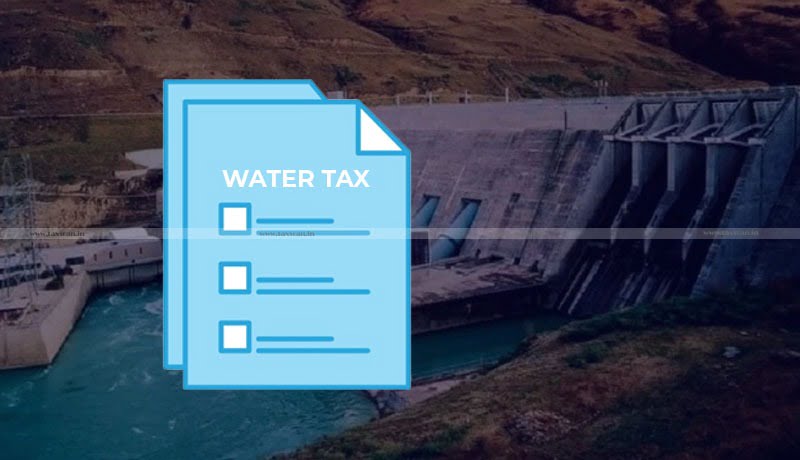Uttarakhand High Court upholds Law levying Water Tax on Hydropower Projects [Read Judgment]

Uttarakhand High Court – Law levying Water Tax – Hydropower Projects – Taxscan
Uttarakhand High Court – Law levying Water Tax – Hydropower Projects – Taxscan
The Uttarakhand High Court upheld the law levying water tax on hydropower projects.
The claim of the petitioners, Alaknanda Hydro Power Co. Ltd, THDC India Ltd, National Hydro Power Corporation, M/s Swasti Power Pvt. Ltd, M/s Bhilangana Hydro Power Ltd, M/s Jaiprakash Power Ventures Ltd is with regard to the ‘flow measuring devices’ not being installed by the Commission under Section 14.1 of the Act falls in the third alternative of adopting an indirect method for assessment of water drawn by the user.
This method is left to the discretion of the Commission. When the petitioners failed to register and provide the requisite information about the water drawn in the past three years, or the current user, the Commission was left with no option but to make a best judgment assessment of the water drawn by the user and the tax due, based on the relevant available figures of the earlier years. On the basis of best judgment assessment, notices were sent to the users, disclosing all the factors relied upon in computation of the tax due.
The petitioners were informed that the assessments are provisional and not final. The notices were issued by the Superintending Engineer, who was appointed as the Nodal Office in the order. This order also contains appropriate delegation of power for further action.
The petitioners submitted that the impugned tax is not based on the quantity of water used but is based on flow rate of water on per cubic meter basis at different Head heights of a dam, used for the purpose of generation of electricity. It is contended that a perusal of the rates of tax in the impugned Act will show that the same is directly relatable to the Height of the Head. There is no mention of the volume of water stored and used for generation of electricity, as the basis for levy of tax. Learned Senior Counsel would further submit that the levy of tax is simply based on the premise ‘higher the Head, the more will be the electricity generated for the same volume of water used’. Thus, the levy is not on use of water but on the amount of electricity generated, depending on the height of the Head and has no correlation to the ‘use of water’.
It was contended that the height of the Head is directly proportional to the number of units of electricity generated, higher the Head, more the units of electricity generated. Though such a ground has been taken in the writ petition, but the same is not happily worded. In so far as the variation on height of head is concerned, higher the head, more water flows from it resulting in higher number of units of electricity generated. This is in correlation with the use of water and cannot be read separately. It is a general principle that more the height of head more units of electricity will be generated. On the other hand, the water used from the lower head, having lesser height, will generate less units of electricity. Thus, the differentiation in taxation is just and reasonable. Therefore, the tax levied by the State is a tax on generation of electricity and not on use of water.
The respondent State has placed a compilation before the Court showing that the petitioners herein have included the water tax imposed by the State Government while calculating the cost of electricity. The contention of the learned Senior Counsel for the respondent State has been denied by the learned Senior Counsel appearing for the petitioners. Be that as it may, the fact remains that since the validity of the Act has been upheld by this Court it makes no difference as to whether the petitioners have included water tax in the costing of the electricity generation or not.
The single judge bench of Justice Lok Pal Singh said, “Assessment was made provisionally subject to the objections of the petitioner companies. The petitioners did not raise any objection to the provisional assessment, rather they approached this Court straight away. On the one hand, the petitioners have challenged the constitutional validity and vires of the Act, on the other hand, they are challenging the validity of the notices issued to them. In so far validity of the notice is concerned, firstly it is a provisional assessment subject to the objections to be filed by the petitioners; secondly, the constitutional validity of the Act has been upheld by this Court. Thus, no fault can be attached to the provisional assessment and the notice of demand so issued to the petitioners”.
To Read the full text of the Order CLICK HERE
Support our journalism by subscribing to Taxscan AdFree. Follow us on Telegram for quick updates.


